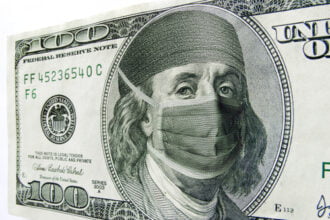 Joan Rivers made us laugh. Joan Rivers made us cry. At times, Joan Rivers made us cringe.
Joan Rivers made us laugh. Joan Rivers made us cry. At times, Joan Rivers made us cringe.
 Joan Rivers made us laugh. Joan Rivers made us cry. At times, Joan Rivers made us cringe. We are saddened to learn of her death—a death brought on, perhaps prematurely, due to a complication of what we are told was minor surgery. With deepest respect for Ms. Rivers and her family, I am shamelessly using her death as a reminder that there is no such thing as a minor medical procedure. With any medical procedure or treatment there is always some risk, and that risk becomes even greater for patients who must spend time in a hospital.
Joan Rivers made us laugh. Joan Rivers made us cry. At times, Joan Rivers made us cringe. We are saddened to learn of her death—a death brought on, perhaps prematurely, due to a complication of what we are told was minor surgery. With deepest respect for Ms. Rivers and her family, I am shamelessly using her death as a reminder that there is no such thing as a minor medical procedure. With any medical procedure or treatment there is always some risk, and that risk becomes even greater for patients who must spend time in a hospital.
Healthcare is a messy, complicated and inherently dangerous business. As a physician, I’m reminding you that one must never be cavalier when dealing with doctors and hospitals. Although harm is never the intent, bad things can happen and they do every day. Each year, some 400,000 Americans die due to medical errors, and perhaps ten times that many people are harmed in some way.
I used to remind my own patients that no matter how much I or my professional colleagues cared about them, no one would care as much as they did about themselves. No one but you and perhaps the people who love you, have as much on the line as you do. So, whenever you find yourself thinking about having an elective surgery, a nip and a tuck, a bigger this or smaller that, think long and hard about the risks, however unlikely, that you are taking on. Especially for truly elective cosmetic procedures, ask yourself if the worst should happen and you suffered a disability, disfigurement, protracted complication or even death, would vanity have been worth the price?
At one time or another due to an accident or a disease nearly every one of us, or someone we love, will spend time in a hospital. When that happens, never let down your guard. Here are some things about a hospital stay I want you to keep in mind.
Never stay a single day longer in a hospital than you need to be there. The longer you stay, the greater the risk—for infection, medical error, or something worse.
Don’t be afraid to speak up. If you don’t understand why a test is being done, why a medication is being administered, why a pill looks unfamiliar, or anything else, call a time out. You’d be surprised how many times a patient or a family member who speaks up can prevent a medical error from happening.
Always ask about, and understand, the risks and benefits of a medical procedure or treatment before you go through with it. If you feel you’re not capable of understanding this, ask a family member to be there with you and help you decide.
Follow instructions implicitly. Both before and after a medical or surgical intervention, be an engaged patient. This is not the time to make up your own rules, or do whatever you want. Whether it’s changing a dressing, taking a medication, getting out of bed, or following up with your doctor, please do what you’ve been told to do, and if you question any instructions you’ve been given, let your doctor know.
Be clear about advance directives and have a living will. Chances are everything will be OK. But if something unforeseen happens, make sure your doctor and family members understand your wishes about such things as life support, artificial ventilation, feeding tubes, quality of life, etc.
Yes, each year bad things happen to many thousands of people in hospitals and clinics due to medical errors but good things happen to many, many more. You have a major stake and a big responsibility in making sure that you are on the right side of that equation.
Microsoft and our health industry partners and customers around the world are working hard to reduce medical errors and improve health outcomes through innovative technologies that facilitate better care-team communication and collaboration, catch errors before they happen, reduce hospital acquired infections, and help prevent unnecessary hospitalizations and readmissions. There remains much more to do.






